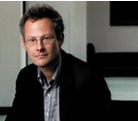Nick Carr on the amorality of Web 2.0


I don't fully subscribe his view. Some Web 2.0 promoters lack objectivity, or are less experienced, but not all see it as a transcendental movement. Some Web 2.0 promoters distrust the professionals or so-called mainstream media, but that's healthy growing pains. The tools of content production and distribution have been unleashed. Open source is a way of product development that is more democratic, but it hasn't prevented both established and new companies from building substantial businesses around it. Wikipedia is full of holes, but it's allure and potential is undeniable. If you are a poor sap who writes encyclopedias for a living, then talk to Jimmy Wales of Wikipedia about how your expertise can be applied to Wikipedia's problems. At some point, foundations, rich Silicon Valley execs and governments should contribute to the cause of getting the world's knowledge online. Web 2.0 is simply about improving Web 1.0. Below are some excerpts from Nick's post:
"If you read anything about Web 2.0, you'll inevitably find praise heaped upon Wikipedia as a glorious manifestation of 'the age of participation.' Wikipedia is an open-source encyclopedia; anyone who wants to contribute can add an entry or edit an existing one. O'Reilly, in a lucid new essay on Web 2.0, says that Wikipedia marks 'a profound change in the dynamics of content creation' - a leap beyond the Web 1.0 model of Britannica Online. To Kevin Kelly, Wikipedia shows how the Web is allowing us to pool our individual brains into a great collective mind. It's a harbinger of the Machine.
In theory, Wikipedia is a beautiful thing - it has to be a beautiful thing if the Web is leading us to a higher consciousness. In reality, though, Wikipedia isn't very good at all. Certainly, it's useful - I regularly consult it to get a quick gloss on a subject. But at a factual level it's unreliable, and the writing is often appalling. I wouldn't depend on it as a source, and I certainly wouldn't recommend it to a student writing a research paper.
The promoters of Web 2.0 venerate the amateur and distrust the professional. We see it in their unalloyed praise of Wikipedia, and we see it in their worship of open-source software and myriad other examples of democratic creativity. Perhaps nowhere, though, is their love of amateurism so apparent as in their promotion of blogging as an alternative to what they call 'the mainstream media.' Here's O'Reilly: "While mainstream media may see individual blogs as competitors, what is really unnerving is that the competition is with the blogosphere as a whole. This is not just a competition between sites, but a competition between business models. The world of Web 2.0 is also the world of what Dan Gillmor calls 'we, the media,' a world in which 'the former audience,' not a few people in a back room, decides what's important."Implicit in the ecstatic visions of Web 2.0 is the hegemony of the amateur. I for one can't imagine anything more frightening.
Like it or not, Web 2.0, like Web 1.0, is amoral. It's a set of technologies - a machine, not a Machine - that alters the forms and economics of production and consumption. It doesn't care whether its consequences are good or bad. It doesn't care whether it brings us to a higher consciousness or a lower one. It doesn't care whether it burnishes our culture or dulls it. It doesn't care whether it leads us into a golden age or a dark one. So let's can the millenialist rhetoric and see the thing for what it is, not what we wish it would be."
Photo Gallery: Web 2.0 Conference 2005